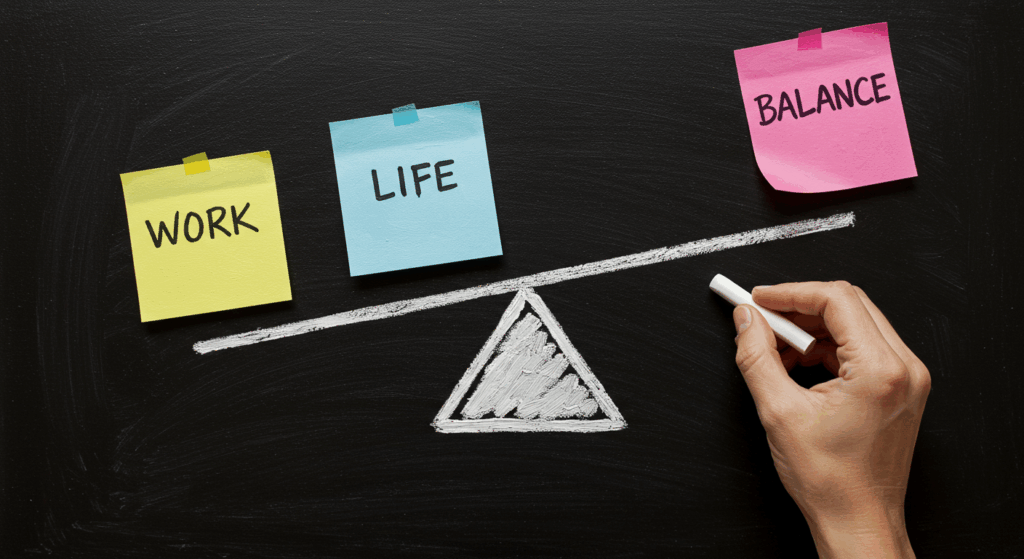Hey, friend—grab that mug of yours, take a seat, and let’s talk about something a bit heavy: toxic work cultures. I’m not gonna sugarcoat anything. We’ve all had that sinking feeling—like, “Why do I dread Mondays again?” Let’s dig into the not-so-obvious signs that a workplace is toxic, how they creep up on us, and why knowing this stuff matters… a lot.
The Signs
1. “Quiet Cracking”—Burnout in Stealth Mode
First up: burnout isn’t always dramatic. There’s this thing called “quiet cracking”—it’s when you’re slowly disengaging, turning off, losing yourself but still showing up. No quitting, no dramatic exit. Just… floating. Almost 20% of workers are in this state regularly, with another third sometimes there too.
If meetings feel like a chore, conversations go quiet, or you feel less-than-yourself by day’s end, you might be cracking—not broken, just quietly fraying.
2. Coercive Behavior and Power Toxicity
Not all toxicity looks obvious either. Over half of professionals in finance and related fields have been around coercive or intimidating behavior—from managers or work politics—even if rarely reported.
We’re talking ego-driven “shut-ups,” dismissive micro-moment control, or people talking down to you. And often, it’s wrapped in “that’s just how things are” work culture.
3. Unrealistic Hours—Burnout with Benefits
You might read job descriptions that promise “growth” while expecting 20 extra hours unpaid every week. These casual-but-crushing demands can damage mental health—fast. One tech worker, despite a lavish salary, was burned out, anxious, and too stuck to leave.
That level of “do-more-to-grow” isn’t ambition—it’s a trap.
4. Morale Crashing? People Are Leaving? Pay Attention.
When people stop caring or start quietly exiting in waves—that’s a big red flag. Disengagement, no feedback, “just get it done” vibe—if it’s everywhere, that’s not productivity, it’s toxicity.
So if the team is yawning, trnover is high, or everyone seems checked-out—that’s a signal to listen to, not ignore.
5. Leadership That Dismisses You, Always
When leaders gaslight, favor certain people, micromanage every step, or set shifting expectations—they’re not just managing poorly. They’re creating ecosystems of mistrust.
If feedback is met with defensiveness, if they take credit and shift blame, that’s not leadership—it’s emotional erosion.
6. Gossip, Cliques, Blame Games
If there’s office gossip that’s more viral than coffee talk—or you sense cliques that exclude, undermine, or gatekeep—that’s not just high school throwback. That’s workplace toxicity.
Add in blame-shifting, unauthorized etiquette, and silence around conflict—and you’ve got muddy waters, socially speaking.
7. No Career Growth—and No Recognition
Working like mad, but no thanks, no raises, no promotions? That’s soul-draining. Lack of clarity on role growth or goals? That’s directionless.
When the system doesn’t acknowledge your effort—or worse, overlooks burnout—that’s not just frustration. It’s mismanagement.
8. Harassment, Bullying, Emotional Abuse
This one’s serious: if there’s visible bullying, harassment, hostility, or discriminatory behaviors—verbal abuse, forceful power-play, even threats—that’s a toxic workplace in full bloom.
These aren’t difficult personalities—they’re harmful ones. You deserve better.
9. Your Health (Physical & Mental) Starts to Show the Damage
Strewss isn’t just in your head. It sneaks into your body. Gallons of coffee, gut pain, sleepless nights, panic in your chest—those are signs. Chronic work stress is literal risk to health.
When the job is slowly breaking you, that’s not hustle, that’s hazard.
10. You’re Afraid to Speak Up
The worst sign? When you feel powerless to speak up. The fear of retaliation, being labeled “too sensitive,” or just getting dismissed—that’s psychological toxicity.
No matter how loyal or eager you are—you don’t lose your right to a safe, respectful workplace.
What You Can Actually Do About It
- Trust your gut. If it feels wrong, call it. Even journaling helps.
- Document stuff—dates, words, emails—it’s clarity and backup.
- Seek support. Coworkers, mentors, HR (if it’s safe), or mental health professionals.
- Set boundaries. Disconnect after work. Unplug. Let your soul catch up.
- Plan your exit quietly, if needed. Sometimes surviving means preparing your leave.
Why It Matters (Even If It Doesn’t Feel Like It)
A toxic workplace doesn’t just harm productivity—it ruins joy, health, and personal growth. It’s not about being “soft” or high maintenance—it’s about self-preservation and sanity. You deserve to work where you’re valued, heard, and protected.









